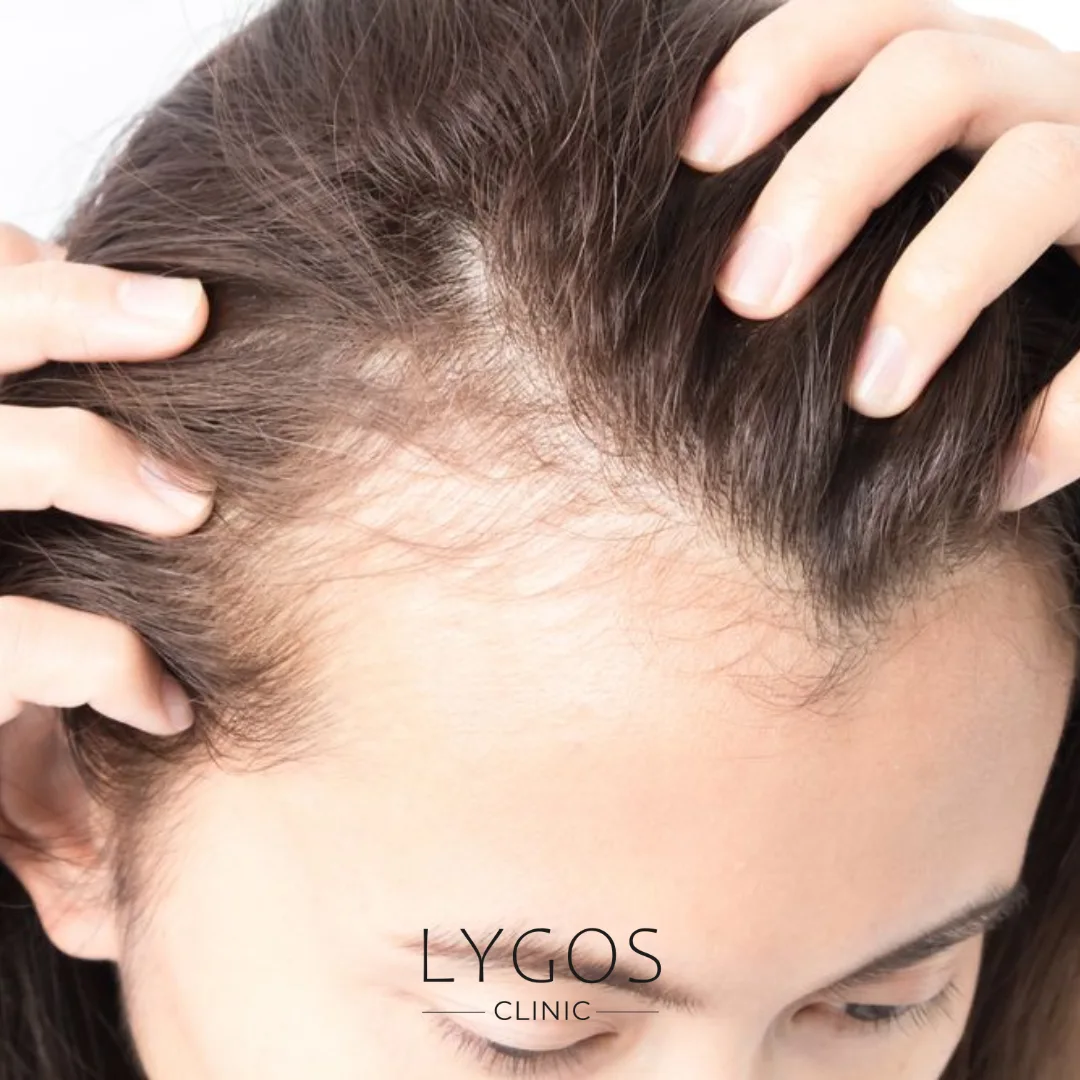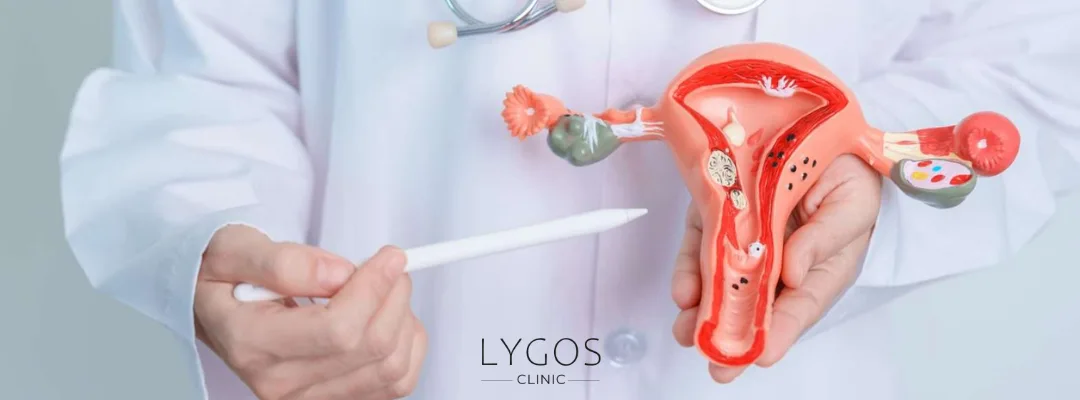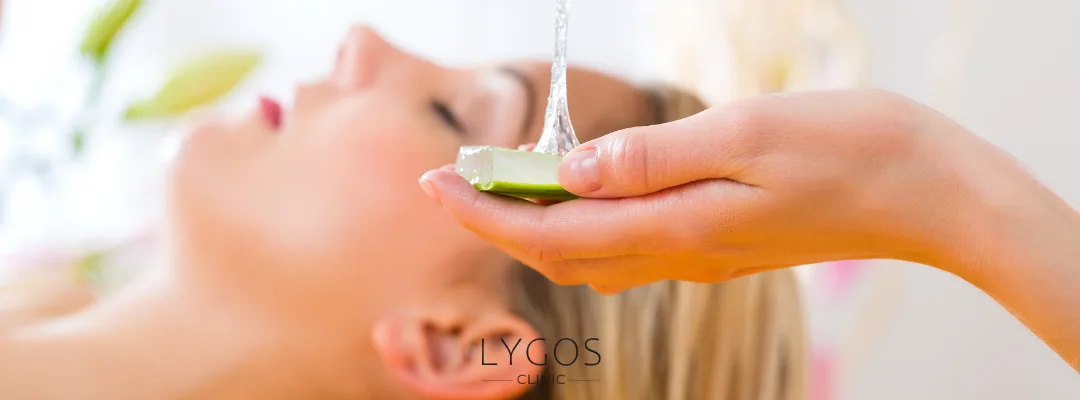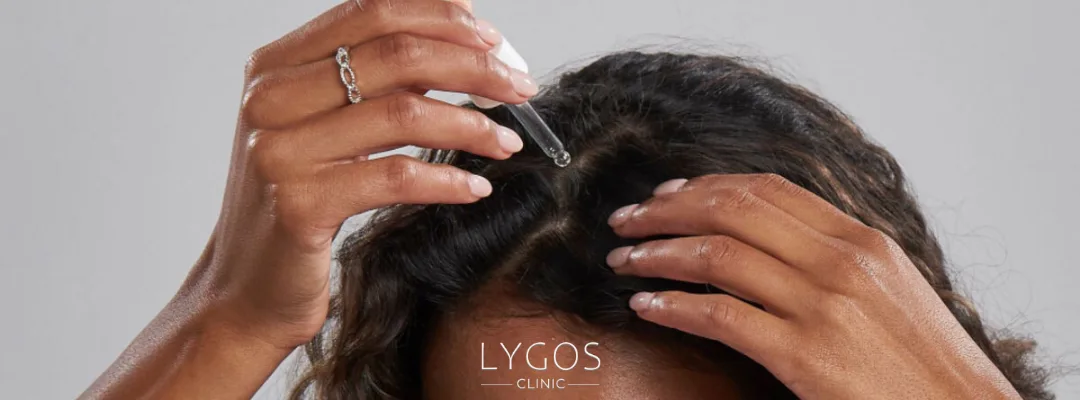Hair Loss Caused by PCOS? | How to Prevent?

Chose Your Topic
Hair Loss Caused by PCOS?
Polycystic Ovary Syndrome (PCOS) is a hormonal disorder that directly affects women’s quality of life. Among the many symptoms caused by this syndrome, hair loss caused by PCOS can become a challenging issue for women, both aesthetically and psychologically. This condition, which appears as thinning, sparseness, or male-pattern hair loss, can lead to a loss of self-confidence over time. In this article, you will find detailed answers to questions such as why hair loss caused by PCOS happens, how it is recognized, and what natural and clinical solutions exist.

What is PCOS and How Is It Related to Hair Loss?
PCOS (Polycystic Ovary Syndrome) is an endocrine disorder in women that causes small cysts to form around the ovaries and disrupts hormonal balance. Along with symptoms like irregular menstrual cycles, acne, increased hair growth, and weight gain, hair loss caused by PCOS is also frequently seen.
One of the most prominent issues in PCOS is the excessive secretion of androgen hormones (especially testosterone). This negatively affects the hair follicles, causing the hair strands to weaken and fall out. Hair loss, particularly concentrated on the top of the scalp and hairline, often resembles male-pattern hair loss.
What Are the Symptoms of Hair Loss Caused by PCOS?
Hair loss caused by PCOS reveals itself with certain characteristic signs. These symptoms help in identifying whether the hair loss is based on hormonal factors:
- Receding hairline: Especially thinning around the temples and forehead.
- Thinning of hair strands: Hair loses its thickness and becomes more breakable.
- Male-pattern hair loss: Thinning on the top of the scalp while hair on the sides and back remains.
- Oily scalp and dandruff: Women with hair loss caused by PCOS may experience excess oil production on the scalp.
- Other accompanying PCOS symptoms: If hair loss is seen alongside acne, excessive hair growth, and weight gain, the likelihood that it is hair loss caused by PCOS increases.

Natural and Herbal Treatments for Hair Loss Caused by PCOS
To control hair loss caused by PCOS, natural and herbal remedies can be supportive. Of course, these should not be expected to replace medical treatment, but they can offer effective alternatives to support hair health.
- Castor Oil and Rosemary Oil: These oils nourish the hair roots and reduce shedding. They can be applied to the scalp several times a week with massage.
- Aloe Vera Mask: Aloe vera soothes the scalp and reduces dandruff. It also helps maintain moisture balance.
- Nettle Tea: Nettle is a plant effective against hair loss. It strengthens hair roots and may help with hormonal balance. 1–2 cups per day are recommended.
- Apple Cider: Vinegar Apple cider vinegar balances the scalp's pH, opens pores, and stimulates the hair roots. It can be used as a rinse.
While these methods don’t work miracles alone, they are effective in alleviating hair loss caused by PCOS.
Effect of Nutrition and Diet on PCOS Hair Loss
Since insulin resistance can underlie PCOS, a proper diet is crucial for both overall health and hair health. Poor eating habits can worsen hormonal imbalance and intensify hair loss caused by PCOS.
- Recommended Foods:
- Omega-3 fatty acids: Foods like salmon, walnuts, and chia seeds support the hair cycle.
- Zinc and iron: Foods like red meat, spinach, and pumpkin seeds strengthen hair roots.
- Low glycemic index foods: Whole grains, legumes, and fiber-rich vegetables help regulate insulin levels.
- Protein sources: Eggs, chicken, and legumes support the production of keratin, the building block of hair.
- To Avoid:
- Sugary and refined carbohydrates: These disrupt blood sugar and hormone balance.
- Foods with trans fats: These further disrupt hormonal balance and may increase hair loss caused by PCOS.
A balanced diet can directly impact hair loss caused by PCOS. Diets tailored by a dietitian will yield better results.
Are Clinical Treatments Like Hair Mesotherapy and PRP Effective?
When natural methods are not enough for hair loss caused by PCOS, medical aesthetic or dermatology clinics offer treatments that may be effective.
- Hair Mesotherapy: This method involves injecting vitamins, minerals, and amino acids into the scalp using micro-needles, nourishing the follicles and potentially slowing shedding.
- PRP (Platelet Rich Plasma): Plasma derived from one’s own blood is injected into the scalp. PRP supports hair strengthening and new hair growth. Visible results may appear after 3–6 sessions.
- Laser Therapy :Low-level laser light stimulates the hair roots and can reduce shedding. It's more effective when combined with PRP or mesotherapy.
These treatments can be effective in addressing hair loss caused by PCOS, but require expert supervision and regular sessions.

How Is Hair Loss from PCOS Treated?
The first and most important step in treating hair loss caused by PCOS is balancing hormones. Treatments focusing only on the hair may not be sufficient unless the hormonal imbalance is corrected.
- Hormone Therapy :Birth control pills or anti-androgen medications (e.g., spironolactone) suppress excess androgen production and reduce hair loss. These must be used under a doctor’s supervision.
- Medications that Increase: Insulin Sensitivity Drugs like Metformin help reduce insulin resistance and indirectly balance androgen levels, helping reduce hair loss caused by PCOS.
- Topical Treatments: Hair lotions such as Minoxidil stimulate the hair roots and support regrowth. However, they require consistent use.
- Psychological Support: Hair loss caused by PCOS can lead to a loss of self-esteem. Psychological support can help manage emotional challenges during treatment.
Hair loss caused by PCOS is a significant issue with both physical and emotional effects. However, it can be managed through proper nutrition, lifestyle changes, natural support methods, and medical treatments when needed. It should be remembered that each body works differently, so treatment must be personalized.
Remember: Hair loss caused by PCOS is not your destiny — with the right steps, this issue can be overcome.
Hair Loss Caused by PCOS? Frequently Asked Questions (FAQ)
No, it is usually not permanent. Once hormonal balance is restored and appropriate treatment begins, hair loss can decrease and hair regrowth is possible.
A gynecologist is the primary doctor for managing hormonal imbalances. For hair loss treatment specifically, you can also consult a dermatologist.
Some birth control pills can reduce hair loss by suppressing androgen hormones. However, their effectiveness varies from person to person and should only be used under medical supervision.
It typically affects women of reproductive age (between 15 and 45 years). However, symptoms can begin at different times depending on the individual.


